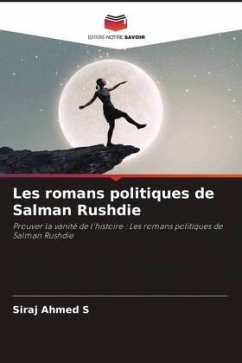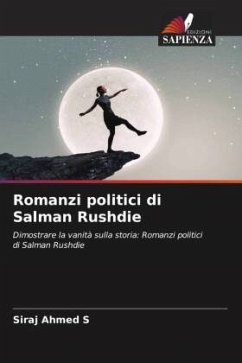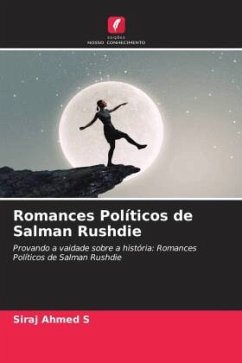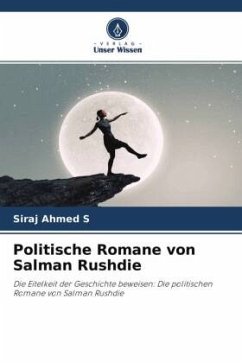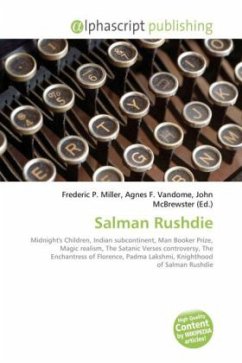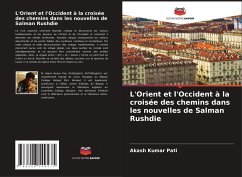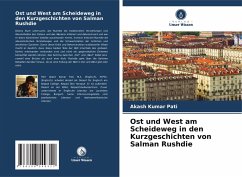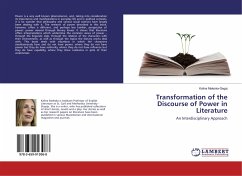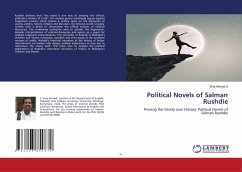
Political Novels of Salman Rushdie
Proving the Vanity over History: Political Novels of Salman Rushdie
Versandkostenfrei!
Versandfertig in 6-10 Tagen
51,99 €
inkl. MwSt.

PAYBACK Punkte
26 °P sammeln!
Rushdie believes that "the novel is one way of denying the official, politician's version of truth". His creative genius relentlessly argues against hegemonic powers which impose a unitary vision on the discourses of society, politics, history, religion and literature. His fictional world is largely written with a desire to reformulate the official versions of colonial discourses. The revisioning enterprise aims to subvert the hegemonic, singular interpretations of colonial discourses and opens up a space for multiple subjective interpretations. The chronicles of Rushdie in Midnight's Children...
Rushdie believes that "the novel is one way of denying the official, politician's version of truth". His creative genius relentlessly argues against hegemonic powers which impose a unitary vision on the discourses of society, politics, history, religion and literature. His fictional world is largely written with a desire to reformulate the official versions of colonial discourses. The revisioning enterprise aims to subvert the hegemonic, singular interpretations of colonial discourses and opens up a space for multiple subjective interpretations. The chronicles of Rushdie in Midnight's Children and Shame contradict, question and even laugh at the accepted versions of reality. Rushdie's historical narratives of the history of Indian subcontinent are loaded with deeper political implications as they aim to restructure the reality itself. This book tries to analyze the political implications of Rushdie's alternative narratives of history in Midnight's Children and Shame.



